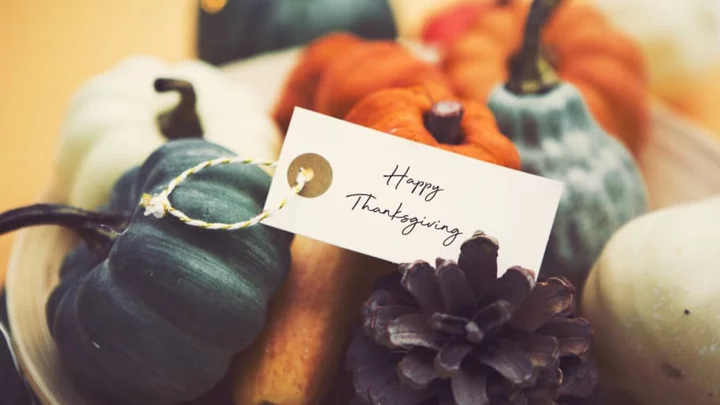In addition to knowing the difference between dressing and stuffing and figuring out what‘s a sweet potato and what’s a yam, there’s one more thing you might be stressing about for Thanksgiving: where to put the stress in the word Thanksgiving.
If you’re from California, Iowa, or Delaware, you probably say “Thanksgiving,” with the primary stress on the second syllable. If you’re from Georgia, Tennessee, or the Texas Panhandle, you probably say “Thanksgiving,” with the primary stress on the first syllable.
This north-south divide on syllable stress is found for other words like umbrella, guitar, insurance, and pecan. Those words are borrowed from other languages (Italian, Spanish, French), and sometimes, in the borrowing process, competing stress patterns settle into regional differences. Just as some borrowed words get first syllable stress in the South and second syllable stress in the North, French words like garage and ballet get first syllable stress in the UK and second syllable stress in the U.S.
Thanksgiving, however, is an English word through and through. And if it behaved like a normal English word, it would have stress on the first syllable. Consider other words with the same noun-gerund structure just like it: seafaring, babysitting, handwriting, bullfighting, birdwatching, homecoming, almsgiving. The stress is always up front, on the noun. Why, in Thanksgiving alone, would stress shift to the “give”?
The shift to the Thanksgiving pronunciation is a bit of a mystery. Linguist John McWhorter has suggested that the loss of the stress on thanks has to do with a change in our concept of the holiday, that we “don’t truly think about Thanksgiving as being about thankfulness anymore.” This kind of thing can happen when a word takes on a new, more abstract sense. When we use outgoing for mail that is literally going out, we are likely to stress the “out.” When we use it as a description of someone’s personality (“She’s so outgoing!”), the stress might show up on the “go.” Stress can shift with meaning.
But the stress shift might not be solely connected to the entrenchment of our turkey-eating rituals. The thanksgiving stress pattern seems to have pre-dated the institution of the American holiday, according to an analysis of the meter of English poems by Mark Liberman at Language Log. Thanksgiving has been around at least since the 17th century. However you say it, there is precedent to back you up. And room enough to focus on both the thanks and the giving.
A version of this story ran in 2017; it has been updated for 2023.
This article was originally published on www.mentalfloss.com as How Do You Stress the Word: THANKSgiving or ThanksGIVing?.









